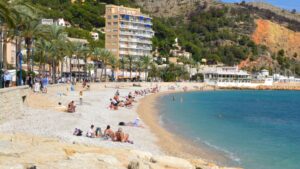Six parties present their candidates for election on May 28th
Each party has presented 21 hopefuls for election to the local council for the next four years.
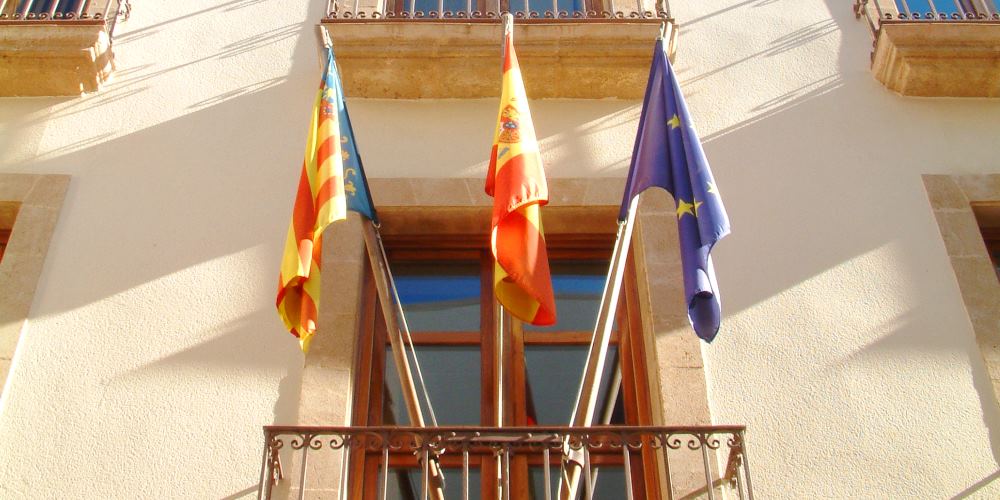
Saturday 29th April 2023
Mike Smith
With the publication in the Official State Gazette of all the electoral lists that will be standing in the next electoral elections on May 28, these are the candidate lists of the six political parties which will be seeking your support to govern the council during the next legislature and occupy the place of the 21 councillors.
PSPV-PSOE
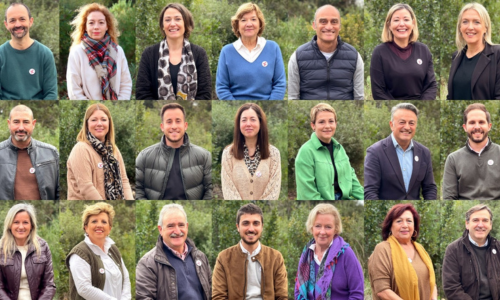
- José Chulvi Español
- Kika Mata Sapena
- Alberto Tur Buigues
- Isabel Moreno Hernández
- Ximo Segarra Fornés
- Rosana Sapena Codina
- Sergio Camarasa Hernández
- Rita Berruti Fuentes
- Josep Vicent Miralles
- Montse Villaverde Retamero
- Olga Sales Serrano
- Doris Courcelles
- Rafa Bisquert Crespo
- Marco Lee Perry Bucher
- Loreto Bolufer Berenguer
- Pepa Ferrero Tomás
- Chus Pobes Serrano
- Pilar González Pérez
- José Luis Luengo Medina
- Toni Miragall Espasa
- Isabel Bolufer Castelló
PP

- Rosa Vicenta Cardona Vives
- Enrique José Escriva Terán
- Teresa Soledad Legay Fornes
- Pere Joan Sapena Segarra
- Fatima Jarjor Soler
- Antonio Molina Canet
- Juan Luis Cardona Salvador
- Juan José García Pastor
- Raquel Violero Castellanos
- María Rosa Torres Cholbi
- José Antonio Buigues Llidó
- Victor Gonzalo Parra Aguilar
- Daniela Buche Simon
- Elena Victoria Gwyn-Jones Watmough
- Carolina Chao Fuster
- José Juan Peñalver Fuster
- Antonio Candamo León
- Julian Meneses Sapena
- Rosa María Perez Ortuño
- Isabel Nadal Torres
- Oscar Rubén Anton Izquierdo
Ciudadanos por Jávea (CPJ)
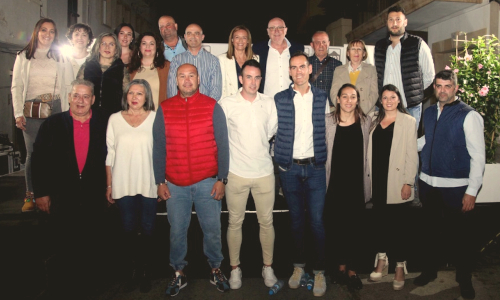
- Mavi Pérez
- Juan Ortolá
- César Rodríguez
- Mari Ángeles Caballero
- David Cordero
- Esther Tormos
- Claudia Fornés
- Abel Moll
- José Prada
- Susana Ern
- Rubén Ortolá
- María Serrat
- Alex Urrego
- Carmen Rivas
- Andrés Martínez
- Guillermo Bolufer
- Adriana Jiménez
- J. Francisco Garrido
- Gema Piedehierro
- Sisco Vallés
- Josefa Martí
Compromís per Xàbia
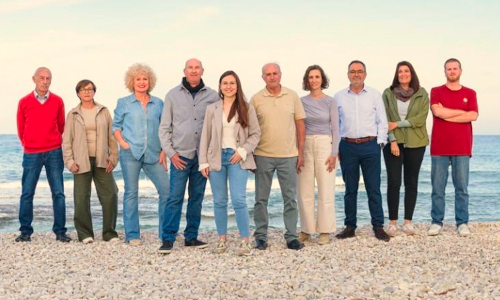
- Carme Català Caturla
- Amadeu Ros i Torres
- Josep Sapena Segarra
- Rebeca Mahaffey Bultitude
- Carmen Tramoyeres
- Vicent Raimón Chorro Cabrera
- Rosa María Puig Mulet
- Francesc Reus Boyd-Swan
- Olimpia Bas Costa
- Javier Gregorio Ramiro
- Isabel Català Arbona
- Francesc Català Cholbi
- Quica Gil Puigcerver
- Ferran Soler Sanchis
- Júlia Català Caturla
- Bertomeu Bas Cabrera
- Pepa Chorro Monserrat
- Felip Antonio Buigues Segarra
- Consol Ferrer Ferrer
- Gabriel Castell Cruañes
- Pere Cruanyes Pons
Podem Xàbia
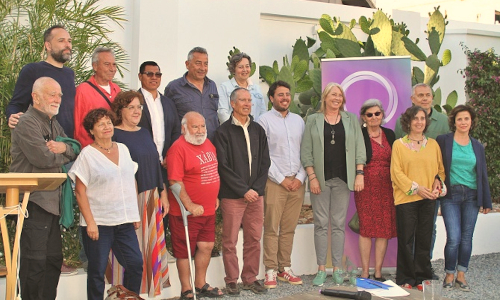
- Juan Antonio López
- Vicena Cruañnes
- Bernhard Feiner
- Angelika Neizke
- Pepe Miralles
- María León
- Alejandro Aguilar
- Berta García
- Josep Lluís Aviñó
- María Dolores Solís
- Ángel Hernández
- María Dolores Sánchez
- Luis Cerdá
- Nina Mary Davis
- Julio Vasquez
- Mónica Borlando
- Goran Nikolic
- Mª Teresa Parra
- Josep Palomares
- Lúcia Aviñó
- Óscar Rosa
Vox

- José Marcos Pons Devesa
- Cristobal Vicente Cholbi Bas
- María José Martínez López
- Pablo Puig Gandolfo
- Esther García Fernández
- Alejandro Soriano Sanchís
- María Bustos Martínez
- Daniel Christian Bas English
- María Dolores Biosca García
- Clara Menguel Ivars
- Juan Antonio García Barragan
- Elena Ronda Molines
- Agustin Simon Fornes
- Rafael Bisquert Gonzalez
- Joaquina Rosello Riera
- Javier Llorente García
- Erika Reus Galindo
- Marcos Gavila Ortolá
- Eric Antoine Pierre Tom Laurent
- Paula Rodríguez Martínez
- José Ramón Moragues Benlloch
How voting works in municipal elections.
Municipal elections in Spain take place on the Fourth Sunday of May every four years. All residents aged 18 and over who are formally registered as residents with the municipality are eligible to vote, including resident non-national European citizens and those who are citizens of countries with have a reciprocal agreement with Spain, such as the United Kingdom.
Councillors are elected by party-list proportional representation in that the vote is cast for the party as a whole rather than an individual. Each party will have determined who will sit on the council prior to the elections so that the candidates positioned highest on the list tend to get a seat of the council whilst those listed further down will not. The person listed as number 1 is normally the party’s candidate for mayor.
The number of councillors allocated to sit on the municipal council is determined by the size of the population. Xàbia’s registered population is 28,731 which means that it falls into the category 20,001-50,000 which allocates 21 councillors. Thus, each political party presents a candidate list of 21 hopefuls, although only a bizarre and unlikely landslide would see one party take all 21 seats.
The number of seats is allocated using the D’Hondt Method in which the total votes cast for each party determines how many seats the party wins on the council. A party has to attract at least 5% of the vote.
In May 2019, when a total of 8,647 people cast their vote, some 55% of the electorate, the seats were distributed as follows:
- PSOE (3,873 votes, 45.32%) – 11 seats and absolute majority
- PP (1,832 votes, 21.44%) – 5 seats
- CPJ (995 votes, 11.64%) – 2 seats
- Compromís (827 votes, 9.68%) – 2 seats
- Cs (564 votes, 6.6%) 1 seat
- Podemos (407 votes, 4.75%) no seats.





